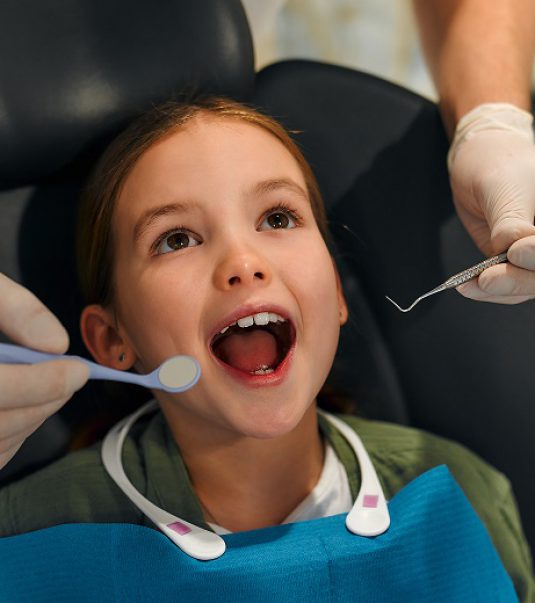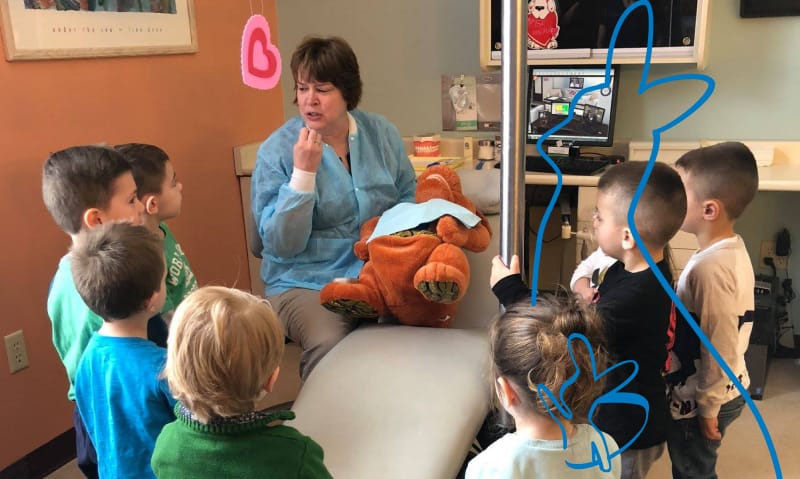How Pediatric Dental Care Addresses Special Dental Needs and Challenges Faced by Expanding Children
Pediatric dental care is a specialized area that responds and acknowledges to the distinct oral needs of children as they expand. With a concentrate on avoidance and customized therapy methods, pediatric dental practitioners address common concerns such as tooth cavities and positioning concerns while also cultivating an encouraging setting that decreases anxiousness. This approach not only mitigates immediate oral obstacles yet additionally prepares for lasting oral wellness. As we discover the various dimensions of pediatric dental care, it becomes noticeable that recognizing its complex function is essential for both specialists and parents alike.
Relevance of Early Dental Visits
Early oral sees are essential for establishing a foundation of great oral health and wellness in kids. The American Academy of Pediatric Dentistry advises that a child's very first oral see happen by their very first birthday or within 6 months of the eruption of their very first tooth. These very early consultations offer multiple functions, including informing parents concerning correct oral hygiene methods, nutritional choices, and the importance of routine dental treatment.
Throughout these check outs, pediatric dental practitioners evaluate the child's oral health and wellness, monitor the growth of teeth, and recognize prospective concerns such as imbalance or degeneration. Early intervention can stop much more major problems later on, making sure that youngsters develop healthy and balanced oral routines and reducing stress and anxiety bordering dental check outs.
Furthermore, establishing a relationship with a pediatric dental professional cultivates a sense of comfort and depend on, making future sees much less challenging. The dental expert can give tailored recommendations that straightens with the kid's developing stage, equipping parents to make educated decisions regarding their kid's dental wellness. Generally, very early dental brows through play an important function in advertising lifelong dental health and wellness, making them a crucial element of pediatric health care.
Typical Dental Issues in Children
Recognizing common dental problems in youngsters is vital for promoting their oral health and wellness and well-being. Kids deal with unique dental difficulties due to their establishing teeth and changing dental atmospheres.
Another substantial concern is malocclusion, which refers to imbalance of teeth. This can lead to problems in chewing, speech problems, and boosted threat of oral injury. Pediatric dental practitioners frequently advise orthodontic assessments to address these worries as kids expand.
Furthermore, dental injury prevails in energetic kids, particularly because of sports and play. Injuries can range from cracked teeth to complete avulsion, demanding punctual examination and therapy to protect dental honesty.
Methods for Handling Dental Stress And Anxiety
Dental anxiousness is a common problem among kids, frequently stemming from unfamiliar settings and fear of pain - pediatric dentistry oakland. Managing this anxiety effectively is essential to make sure that children get essential dental treatment without unnecessary stress. Pediatric dental professionals use several techniques to minimize anxiety and produce a much more comfy experience
First, using a welcoming, child-friendly workplace setting can considerably lower fear. Vibrant decorations, toys, and friendly personnel aid create a feeling of security and knowledge. In addition, effective communication is crucial; pediatric dental experts typically explain procedures in basic, non-threatening terms to assist demystify the process.
Interruption methods, such as giving headphones with music or enabling kids to watch videos during treatment, can additionally divert interest from prospective pain. Moreover, behavioral monitoring approaches, consisting of favorable reinforcement, motivate cooperation by praising children permanently behavior.

Function of Preventive Care
Preventive care plays a vital duty in pediatric dental care, focusing on preserving oral wellness and avoiding potential issues before they arise. By implementing an aggressive strategy, pediatric dental professionals intend to educate both youngsters and their caretakers regarding the significance of dental hygiene and normal oral gos to. This education consists of instruction on proper brushing and flossing strategies, in addition to the importance of a well balanced diet in promoting dental health.
Regular oral exams are essential for early discovery of cavities, misalignment, and various other oral health and wellness issues. During these sees, pediatric dental practitioners can apply fluoride treatments to reinforce enamel and give oral sealers to protect versus degeneration in at risk locations of the teeth. In addition, these examinations function as a chance for dental professionals to check the growth of a kid's jaws and teeth, guaranteeing that any type of abnormalities are addressed promptly.
Moreover, pediatric dental practitioners commonly evaluate children's see this page behaviors such as long term or thumb-sucking pacifier usage, which may impact dental positioning. By attending to these routines early, preventative care not just fosters a healthy and balanced smile but likewise imparts long-lasting dental health and wellness techniques in youngsters, establishing the structure for a lifetime of great oral hygiene.

Transitioning to Teen Dental Care
As kids expand and establish, their oral demands evolve, leading to distinct considerations in teen dental care. This shift marks a critical period where the mouth undergoes substantial changes, consisting of the eruption of permanent teeth and the prospective onset of orthodontic problems. Teenagers frequently experience boosted self-reliance, which can impact their dental hygiene techniques and dietary selections, demanding tailored educational approaches.
Throughout this phase, dental professionals concentrate on preventive care and very early treatment techniques. Normal exams come to be critical for monitoring the advancement of teeth and jaw placement, recognizing problems such as cavities, gum tissue condition, and malocclusion. Teenagers also call for assistance on handling oral wellness obstacles connected with hormone changes, such as increased vulnerability to gingivitis.
In addition, the psychosocial aspects of oral treatment are vital; oral stress and anxiety may come to a head during adolescence, making it essential for experts to utilize reliable communication strategies to minimize worries. By promoting a positive dental experience, specialists can encourage long-lasting oral wellness behaviors. Transitioning to teenage dentistry is not merely a change in therapy methods yet an extensive strategy to support the special developmental and emotional demands of expanding individuals.
Final Thought
In conclusion, pediatric dental care plays a crucial duty in attending to the special dental needs of children with early treatment, efficient administration of common oral problems, and the application of precautionary treatment methods. By creating a helpful atmosphere and utilizing strategies to reduce stress and anxiety, pediatric dental experts cultivate favorable oral experiences that motivate lifelong dental health and wellness behaviors. The change to teenage dentistry additionally makes sure that the progressing oral demands of expanding individuals are fulfilled with specific treatment and knowledge.
Pediatric dentistry is a specialized field that identifies and responds to the more helpful hints distinctive dental demands of children as they grow (pediatric dentistry oakland). The American Academy of Pediatric Dentistry suggests that a youngster's first oral visit take place by their initial birthday or within six months of the eruption of their first tooth. By applying an aggressive strategy, pediatric dental professionals aim to inform both youngsters and their caretakers regarding the importance of dental health and routine oral sees.In addition, the psychosocial aspects of dental care are important; oral stress and anxiety may come to a head throughout teenage years, making it necessary for practitioners to use effective communication approaches to reduce fears.In verdict, pediatric dental care plays an important duty in addressing the one-of-a-kind oral requirements of children via very early intervention, reliable monitoring of usual oral concerns, and the application of preventive care techniques